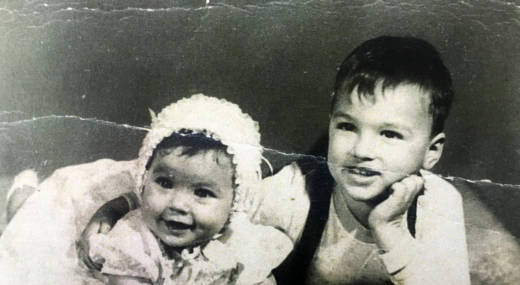Police knew Marvin Mutch's name by the time he turned 3 years old, around the time he learned to run.
How do we know? Because "little Marvin the Terrible" the "itchy-footed 3-year-old" with "a rap sheet as long as his arm" made the January 6, 1960 edition of the Oakland Tribune for his habit of running away.
But a darker picture lurks behind the newspaper's glib copy and cartoon. Young Marvin had a reason to run. His mother was in and out of the hospital for mental and physical illnesses, and from an early age, Marvin and his younger sister, Valerie, were left to fend for themselves. Or worse, they were housed in a series of abusive or neglectful foster and group homes. That's where they both developed criminal records -- mostly for running away.
In late 1974, the family moved to Union City, where Valerie and Marvin played surrogate parents to their two younger half-sisters. Their mother was hospitalized, and the children were fending for themselves.
A phone call would change everything and put both Marvin and Valerie on a collision course with Cassie Riley's murder and the criminal justice system.
